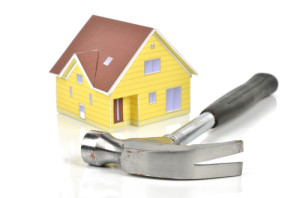Should I Sell As-Is?
Bill Reilly Team October 18, 2016
 As one of the most difficult decisions in real estate marketing, the idea of selling "as-is" (without making any repairs, renovations, or upgrades) appeals to homeowners needing to sell quickly or that are cash strapped.
Can you do it? Yes.
Should you do it? Well…that depends on your market and how badly your home needs fixing, how much you owe on it and how much you need from it.
Buyers that lean toward purchasing a fixer typically fall into three main categories:
As one of the most difficult decisions in real estate marketing, the idea of selling "as-is" (without making any repairs, renovations, or upgrades) appeals to homeowners needing to sell quickly or that are cash strapped.
Can you do it? Yes.
Should you do it? Well…that depends on your market and how badly your home needs fixing, how much you owe on it and how much you need from it.
Buyers that lean toward purchasing a fixer typically fall into three main categories:
- Flippers – a flipper is a real estate investor that purchases property with the intent to generate revenue quickly. Often, they are willing to purchase a fixer or distressed property with good "bones" (structure, foundation, etc.), fix it up quickly for resale or rental.
- Fixers – a fixer purchases distressed property to fix up, but they tend to live in the property while they fix it with the goal of eventually selling or renting when they invest in a new property to fix. Different from flippers, they look to own the home longer term, so may be more willing to purchase a home that needs more work.
- First-timers – a first-time buyer is either someone that has never owned a home, or someone that has not held title to a home for more than three years so they are not rolling the proceeds from a previous property into the new one. First timers that have never owned a home, but have some skill in the DIY area may look for lower cost, as-is properties for the low entry cost. This category includes former property owners that may have lost their home during a financial crisis or bankruptcy and are now in a position to buy again.
- One final category is investors purchasing a home for the land and location, intending to demolish the home and build new. If your property is on the verge of a rezoned business area, is transitioning to multi-family dwellings, hotels or some other type of property, an investor may purchase your home for its location rather than for its amenities.
In each of these cases, you might benefit from a quick sale, freeing up cash for yourself. Just know that the buyer expects a discounted price that reflects the additional amount they will have to invest to make the property livable. Seeking these types of buyers in a hot market is more likely than in a slow market area.
Note: FHA has specific minimum property standards (MPS) required, so selling "as is" may reduce your buying pool by those wanting FHA loans if your property does not meet those standards.
What are the minimal fixes?
Fixing up your property, at least by bringing it up to code, will increase its value and bring you nearer to fair market value for your home. If you owe money on your home, this is an important consideration. Unless the investment to fix it up will cost more than the amount you might still owe if it sells low, you should figure out a way to fix it up. We can help you determine which items are important to fix, which can be concessions in your contract and which you can ignore.
Here is a short list of items to consider fixing if you can:
- Patch cracks in ceilings and walls
- Remove peeling paint
- Paint walls with a neutral color
- Replace broken windows
- Fix code violations
- Repair leaky or broken pipes
- Repair the roof if there are leaks
- Remove and replace moldy drywall
- Trim overgrown vegetation
- Remove anything dangerous that could make you liable for injuries to potential buyers visiting your home.
If you need to sell your home quickly, let your real estate agent know immediately so that they can best advise you on which items to repair, which to ignore, and which to offer concessions for.
Compliments of Virtual Results
 As one of the most difficult decisions in real estate marketing, the idea of selling "as-is" (without making any repairs, renovations, or upgrades) appeals to homeowners needing to sell quickly or that are cash strapped.
Can you do it? Yes.
Should you do it? Well…that depends on your market and how badly your home needs fixing, how much you owe on it and how much you need from it.
Buyers that lean toward purchasing a fixer typically fall into three main categories:
As one of the most difficult decisions in real estate marketing, the idea of selling "as-is" (without making any repairs, renovations, or upgrades) appeals to homeowners needing to sell quickly or that are cash strapped.
Can you do it? Yes.
Should you do it? Well…that depends on your market and how badly your home needs fixing, how much you owe on it and how much you need from it.
Buyers that lean toward purchasing a fixer typically fall into three main categories: